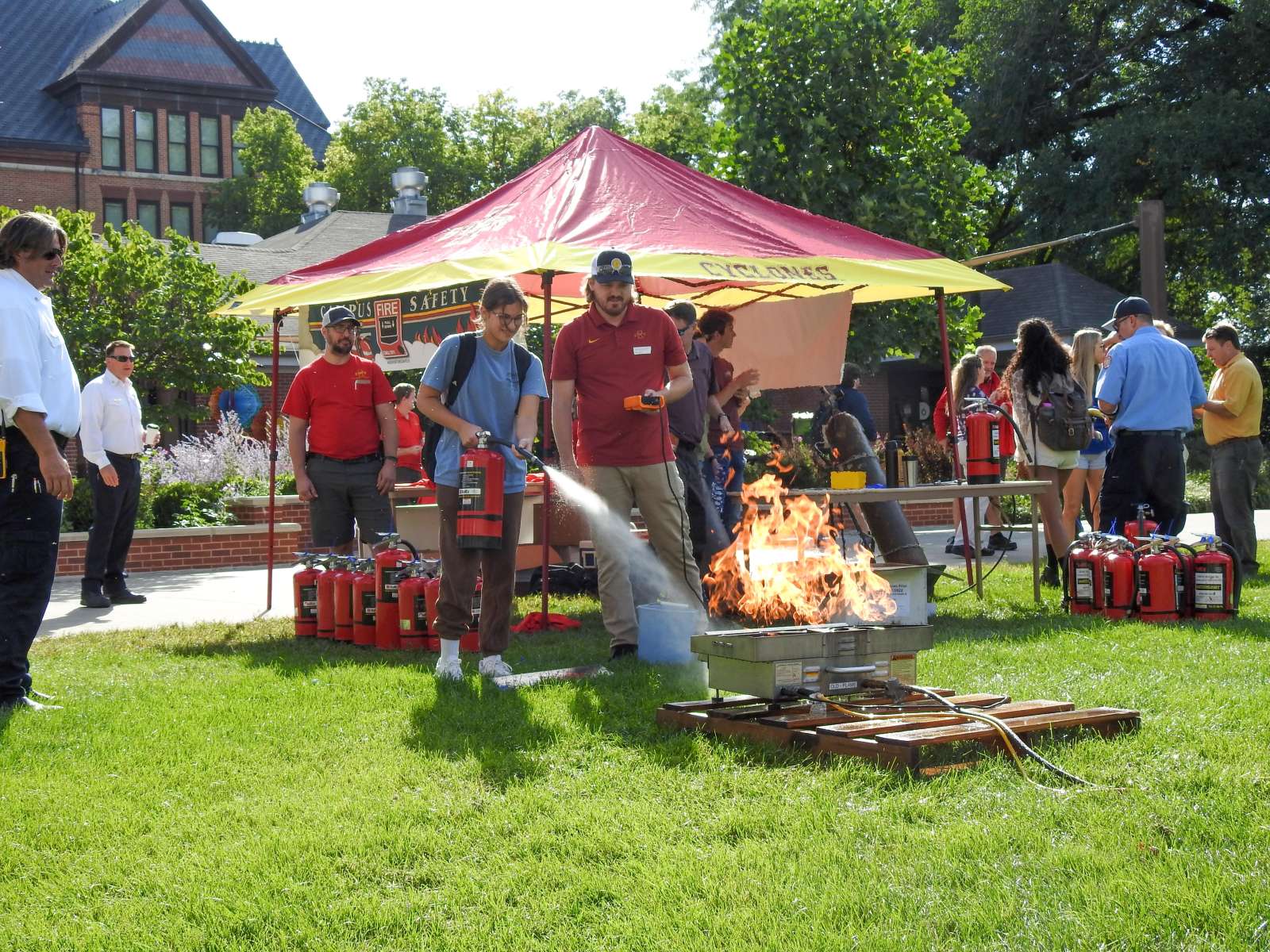Protecting lives and property
Our proactive fire prevention program is founded on education, facility oversight, and incident investigation.

Our proactive fire prevention program is founded on education, facility oversight, and incident investigation.
All faculty, staff, students, and visitors to Iowa State facilities are responsible for the prevention of fires. Departmental supervisors should review with employees the information covered in the Fire Safety Guidelines manual and discuss any departmental procedures that may vary. You can find more information for your type of work below.
Candles and other open flames can only be used with appropriate permission. They pose a great fire risk and violate fire safety codes. To learn more, visit the Candles, Open Flames ISU Policy.
Fire extinguishers at Iowa State University meet regulatory requirements and allow trained employees to attempt to extinguish small fires. EH&S offers hands-on and online training courses in Workday Learning and Canvas (students) that cover all aspects of fire extinguisher use. Fire extinguisher training is required for all university staff on an annual basis. If you need assistance, please contact ehstrain@iastate.edu.
EH&S installs, maintains, and inspects fire extinguishers at Iowa State University. Departments are responsible for charges related to fire extinguishers in departmental areas. Please contact EH&S with concerns about the placement or selection of fire extinguishers. Any extinguisher found to be faulty, discharged, or missing must be reported to EH&S at (515) 294-5359 or ehsinfo@iastate.edu.
The use and storage of flammable and combustible liquids must comply with State Fire Marshal Division rules. Below are guides to the most common regulations relating to flammable and combustible liquids.
Combustible: A liquid with a flash point over 100°F (38°C).
Flammable: A liquid with a flash point under 100°F.
Contact between incompatible chemicals presents a serious fire risk. Proper handling and storage procedures should be followed.
No more than 10 gallons (37.9L) of flammable liquids may be kept outside of an approved storage cabinet at any time. Flammable and combustible liquid storage cabinets shall meet appropriate NFPA standards and may not be modified in any way. It is not recommended to ventilate storage cabinets. If not ventilated, storage cabinet vent openings shall be sealed with the bungs supplied with the cabinet.
Up to 5.3 gallons (20L) of flammable and combustible liquids may be stored in UL- or FM-listed safety cans. Safety cans must be constructed from metal and come equipped with a flame arrestor and spring-loaded caps on both the filling and pouring spouts to prevent spillage when dropped. The double-perforated metal surface of the flame-arrestor screen prevents flames from entering the container. Safety cans are available for both dispensing products and collecting waste. Safety cans shall not be modified. Many consumer portable fuel containers available at stores do not meet safety can standards.
Commercially available domestic refrigerators contain built-in ignition sources and shall not be used to store flammable liquids or explosive chemicals. Light bulbs, switches, temperature controls, standard plugs, motor-starting relays, thermal overload devices, and heater strips (for frost control) are all ignition sources.
Anyone who needs a refrigerator to store flammable liquids or explosives should use refrigerators specifically designed and approved for such use. Store flammable liquids requiring cool/cold storage in refrigerators/freezers manufactured for that purpose. Modification of general-purpose (domestic) refrigerators or freezers for flammable liquid storage is NOT permitted. Labels are available from EH&S.
Before using a space heater, contact Facilities Planning & Management at (515) 294-5100 or use FPM's report a problem online option to ensure there isn't a mechanical problem causing the colder temperatures in your office. In appropriate situations, approved space heaters are available.
The space heaters approved for office use can be purchased from Central Stores or the Grainger catalog in cyBUY, which is now accessed through the "Procurement" icon in Workday. The two approved models are: